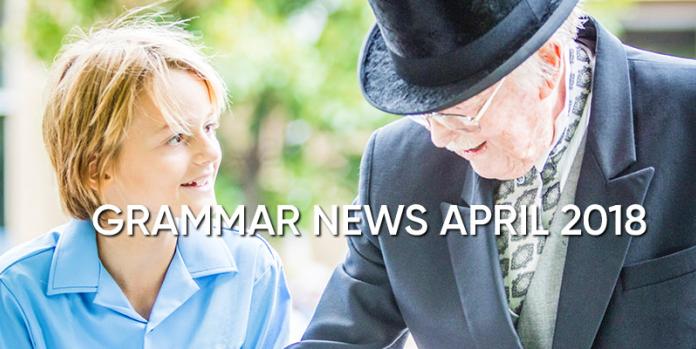Chairman of Council, Mr Michael Bartlett, highlights some of his personal encounters with ‘excellence’.
There is no shortage today of written or verbal opinion on the nature of excellence, in all areas of human endeavour. As you might expect, Aristotle had some interesting thoughts on the subject; and, should you accept its premise, his ‘We are what we repeatedly do; excellence, therefore, is not an act but a habit’, has particular relevance to primary and secondary schooling.
The following are three personal encounters with excellence, and each demonstrates a different type of excellence, from my perspective.
During my four years at Grimwade House, from 1966 to 1969, you were certainly regarded as very fortunate to be taught by Mr Alan Pope. Mr Pope, or ‘Tip’ as he was affectionately and respectfully nicknamed, was small of stature, always smartly attired in black suits, and his black shoes habitually gleamed with a parade ground gloss.
Most importantly of all, he was a great teacher and demanded a disciplined perfection in all written work from his students. He went to great lengths to explain and demonstrate how he wished each page of a particular written exercise to be set out. Needless to say, Tip’s classroom was always immaculate and, if I am not mistaken, he even sharpened the chalk before using it on the blackboard – yes, such was our educational technology, back in the 1960s!
Mr Pope also organised and conducted the annual school musical. A week before our musical one year, I succumbed to flu and, as a boarder, I was confined to Sick Bay. I was most disappointed to be missing out on our production of the Pirates of Penzance. However, before the performance, Tip made the time to visit me in Sick Bay, resplendent in his white tie and tails, just so that I could have a flavour of the evening ahead. As an eleven-year-old, I greatly appreciated that gesture of kindness and thoughtfulness, from a most effective and dedicated educator.
While working in New York for Morgan Stanley, I was the junior member of a team sent up to Toronto to defend a chemical company from a hostile takeover. The Managing Director leading our team was Griff Sexton. Our work days were long, and stressful, and climaxed with regular presentations to the Board during which Griff was, understandably, grilled by concerned Directors, and peppered with questions relating to the takeover which, by then, was featuring regularly in the financial press. Despite the pressures of his position, Griff was always an absolute delight to work for – always patient, reasonable and fair, and he never, ever, displayed any aloofness or arrogance.
After a particularly stressful Board Room session, I asked Griff how he managed to remain so calm and strategically thoughtful under such constant pressure. He smiled, paused, and then responded in a quiet and humble voice: ‘Michael, when you have been a fighter pilot in the Korean War, and been shot at, repeatedly, then you realise what real pressure is’.
While my wife and I had the great privilege of living in Hong Kong for seven years, our car was serviced by the impressive Billy Leung. I have never met anyone since who radiated such continual positivity. As our professional relationship developed, I learned more about the man himself. He had joined the navy as a young man, which might explain his physical fitness and disciplined professionalism, and, later, went on to become a civilian automobile mechanic. He may well have begun his technical training in the navy.
Whenever, I delivered our car for servicing, and discussed what needed attention, I always listened for and received what I came to know as Billy’s mantra, because he always said it: ‘Michael, I shall try my best’. Needless to say, our Honda Civic, ran faultlessly under Billy’s care. Over those HK years and subsequently, whenever discussing a proposed endeavour, the expression ‘doing a Billy Leung’ entered my shared phraseology with my wife, and, of course, it meant ‘to try my best’. To conclude, where I began, and I acknowledge that I am a hopeless golfer, Lee Trevino was being positively Aristotelian when he said ‘The harder I work, the luckier I get’.
Michael Bartlett Chairman
Related topics
